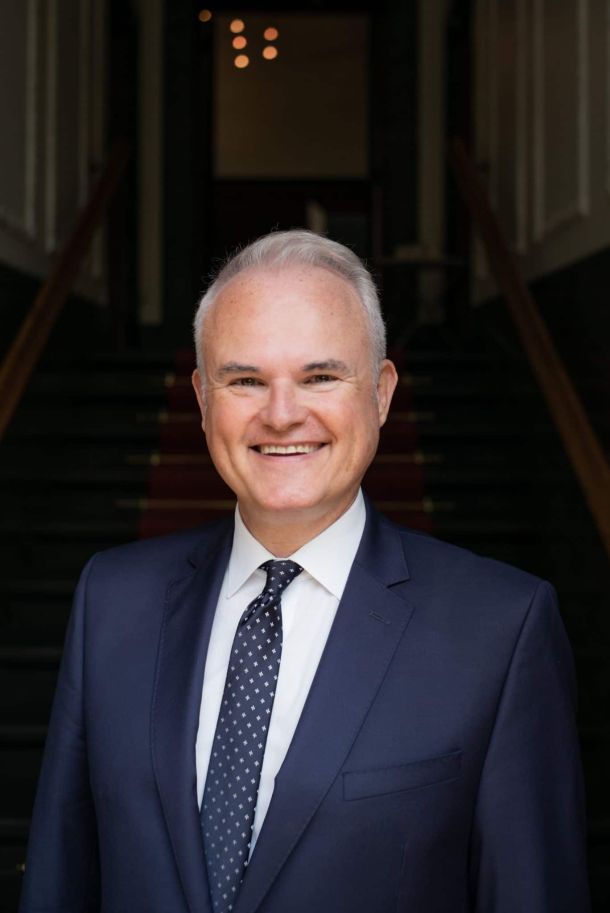“The individual is more than his mental disorder!”
Mental Health Institute Berlin
WHAT ARE PERSONALITY DISORDERS?
According to the psychologist Prof. Dr. Rainer Sachse, personality disorders are, at their core, disorders of interaction, relationship or relationship formation. So ultimately relationship disorders. This partly contradicts the original assumption that personality disorders are profound developmental disorders that affect more or less all areas of the personality. People who suffer from personality disorders exhibit unfavorable beliefs (schemas) about relationships. These can manifest themselves in thoughts such as “I am not important” or “in order to be noticed, you have to draw special attention to yourself.”
Against the background of such beliefs, these individuals then develop dysfunctional, i.e., unfavorable or “costly” strategies for shaping relationships. This can express itself through particularly demonstrative “drawing attention to oneself”, fears can develop or physical complaints. In other words, they develop behaviors that cause their interaction partners to react in a certain way. Often, however, such behavior will result in higher “costs” than “gains” in the long run. This is true for the patients as well as for the environment.
Our Promise
The Mental Health Institute (MHI) Berlin is a private clinic that offers modern and scientifically sound day-clinical and outpatient treatments to people with mental problems and suffering.
WHAT ARE THE
PERSONALITY DISORDERS?
We roughly distinguish three main groups of personality disorders.
The main group A includes the paranoid and schizoid personality disorders under the keywords “peculiar, eccentric”. The main group B summarizes the histrionic, narcissistic, dissocial as well as the borderline personality disorder under the keywords “dramatic, emotional and moody”. In the main group C personality disorders are found which show behavioral features from the field of anxiety disorders. This is associated with terms such as “self-confident, dependent and obsessive” personality disorder.

personality disorders
include:
PARANOID
PERSONALITY DISORDER
People suffering from this disorder are strongly to extremely distrustful of their interaction partners, wait-and-see, and always prepared to be attacked or hurt by others. A central relationship pattern is defending one’s own boundaries.
Paranoid personality disorder is rare (1% of the population). It must be distinguished from delusional disorders with persecutory delusions.
Schizoid
PERSONALITY DISORDER
Schizoid personality disorder is also rare – it occurs in 1% of the general population. People who suffer from it seem aloof, indifferent, emotionless, or disinterested. They keep their counterpart at a distance – often especially non-verbally. Basically, they would like to have relationships, but tend to consider them dangerous and find them exhausting. They live a secluded life and have few contacts with other people.
Histrionic
Personality Disorder
Histrionic personality disorder occurs with a frequency of about 2% in the general population. The central motive here is perceived importance. Affected individuals rely heavily on external attention and affection and constantly seek approval from others. They are often extroverted, have performing skills, are fun-loving, and can carry others away. Although these people often have a large circle of friends and a lot going on in their lives, they know periods of loneliness, dissatisfaction, and inner emptiness with nagging self-doubt that then brings them into treatment.
NARCISSTIC
PERSONALITY DISORDER
Narcissistic personalities often come across as demanding, arrogant or overbearing. Outwardly they appear self-confident, but at the same time they are very sensitive, vulnerable and have difficulty dealing with criticism. Underlying this is a rather weak and, above all, fragile self-esteem, which is to be hidden by the staging of a “great facade”. Ultimately, it is a sewing disorder whose central motive is recognition.
Initial problems often occur at a young age in the work environment, as narcissistic people do not live up to their standards and are plagued by fears of failure, for example before exams. Later in life, they often become conspicuous due to work disorders and fall short of their own standards and abilities.
While obsessive thoughts are experienced as threatening, morally reprehensible or burdensome, compulsive actions are behaviors that must be performed again and again in ritualized form, often to prevent a perceived danger. The triggered feeling is fear, which can be accompanied by strong tension. In order to neutralize the unpleasant feelings or to avert the supposed danger (e.g., becoming infected with germs or starting a house fire), certain rituals must be performed in thought or via concrete actions.
EMOTIONALLY UNSTABLE
PERSONALITY DISORDER (BORDERLINE TYPE)
Important criterion of a generalized anxiety disorder are excessive worries and fears about everyday matters (health, financial burdens, well-being of family members, etc.). The worries concern several areas, occur in different situations and lead to constant tension in the affected person. The reason for this is an overexcitation of the nervous system. Sleep disturbances, muscle tension, restlessness or feelings of anxiety can be the result. Those affected quickly fall into a cycle of worrying and imagining catastrophic scenarios.
Frequently, reassurances, such as calls to partners, whether everything is all right, are used to avoid the worries.
DISSOCIAL
PERSONALITY DISORDER
An important criterion of generalized anxiety disorder is excessive worry and apprehension about everyday matters (health, financial burdens, well-being of family members, etc.). The worries concern several areas, occur in different situations and lead to constant tension in affected persons. The reason for this is an overexcitation of the nervous system. Sleep disturbances, muscle tension, restlessness or feelings of anxiety can be the result. Those affected quickly fall into a cycle of worrying and imagining catastrophic scenarios.
Frequent reassurances, such as calls to partners to see if everything is all right, are used to avoid the worries.
SELF INSECURE
PERSONALITY DISORDER
Self-Insecure Personality Disorder is relatively common in the general population, with an incidence of 3-5%. Affected individuals are shy, feel inhibited and insecure in many interpersonal situations, and isolate themselves for fear of negative evaluation, criticism, or rejection. They desire close relationships but do not dare to take the initiative.
Anxious-avoidant personalities are prone to developing other mental illnesses (especially anxiety disorders (social phobia), obsessive-compulsive disorders, and depression).
DEPENDENT
PERSONALITY DISORDER
People with dependent or dependency personality disorder feel they cannot lead their lives independently. They seek closeness and contact in an extreme form and always need a person to support them and make important decisions for them. Out of fear of losing this caregiver, they subordinate themselves to the partner and do not express their own feelings or needs. However, this “clinging behavior” is often the trigger for relationship problems. The central motive here is reliability.
People with dependent personality disorder are affectionate, reliable, helpful and faithful and are therefore valued as good and reliable friends. In a stable environment, affected people often manage without problems for a long time; however, a change in the life situation, e.g., due to moving, separation, death of the partner or other circumstances can lead to a psychological crisis.
ANANKASTIC
PERSONALITY DISORDER
Obsessive-compulsive personalities often appear neat and correct to the outside world and are described as conscientious. They are anxious not to make mistakes. Their accuracy and reliability are highly valued (especially at work), but at the same time they place their own high expectations on others, which often leads to conflict. People with obsessive-compulsive personality disorder have often learned that recognition and importance can only be achieved by adhering very strictly to predetermined rules and norms.
How are personality disorders treated at MHI Berlin?
Personality disorders and the associated difficulties have often existed for patients since childhood or adolescence and are not infrequently even seen as necessarily problematic, but as an unchangeable part of their own personality. Against this background, a presentation of the affected person is often rather based on other diagnoses such as depression, anxiety disorders or dependency disorders. Only in the course of therapy does a personality disorder crystallize, if necessary, which influences the way the other disorder is dealt with.
In therapy, the first priority is to develop an awareness of the problem and motivation to change. In particular, a trusting and sustainable relationship with the therapist is crucial. Basically, the therapy of personality disordered patients is divided into psychotherapy and, if necessary, psychopharmacotherapy.
A modern treatment concept.
individually tailored to you.
In psychotherapy, based on a stable therapeutic relationship as well as an existing motivation to change, dysfunctional patterns can be uncovered, classified and ultimately alternative courses of action can be developed.
These can then be practiced and manifested in everyday life. The aim is not to change the patient’s personality, but rather to uncover behaviors that are detrimental to the patient in the medium to long term and to expand the patient’s repertoire of actions.
Psychopharmacotherapy can have a supportive effect on various symptoms, such as depressive symptoms, anxiety or obsessive-compulsive symptoms as well as psychotic symptoms, impulsivity or aggressiveness.
Information about patient admission at MHI Berlin
The MHI Berlin offers its services to patients of all private health insurances, as well as to those paying for their own treatment. Immediate admission to the day clinic is usually possible.
The beginning of our common path
For the fastest possible initial contact, please contact us by phone or use our contact form.
After you have contacted us, the MHI Berlin team will contact you to arrange an appointment for an initial interview as soon as possible. The initial interview forms the basis of the admission.
If no acute admission is required, MHI Berlin submits the application for cost coverage to the cost units in advance.
In acute cases, the MHI Berlin contacts the cost bearers directly after admission regarding the cost clarification.
In any case, the clinic assists you in all bureaucratic processes and thus simplifies and accelerates your admission to the clinic.

